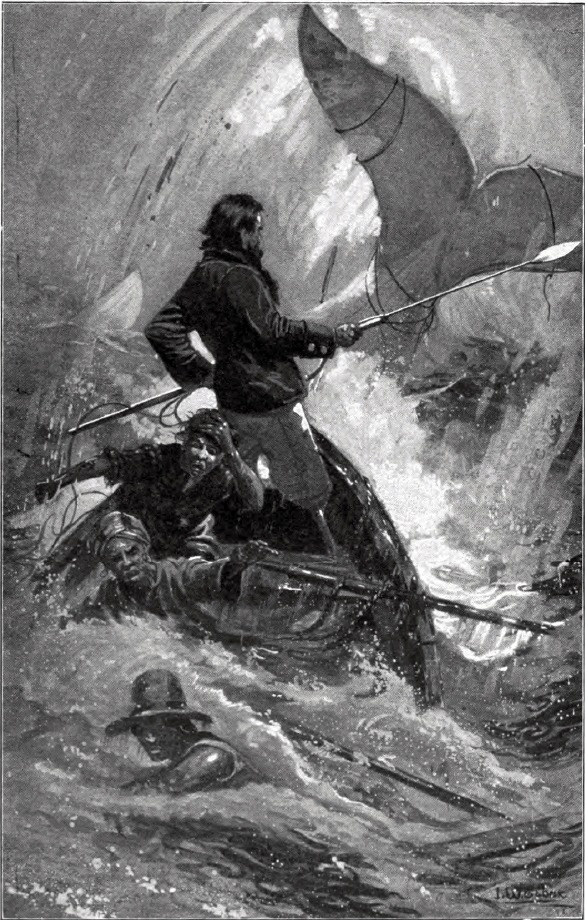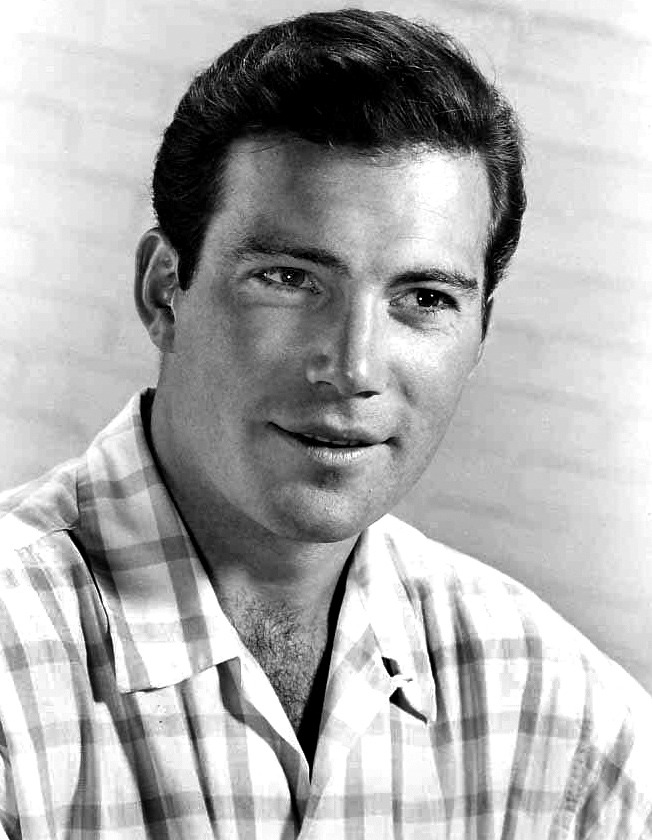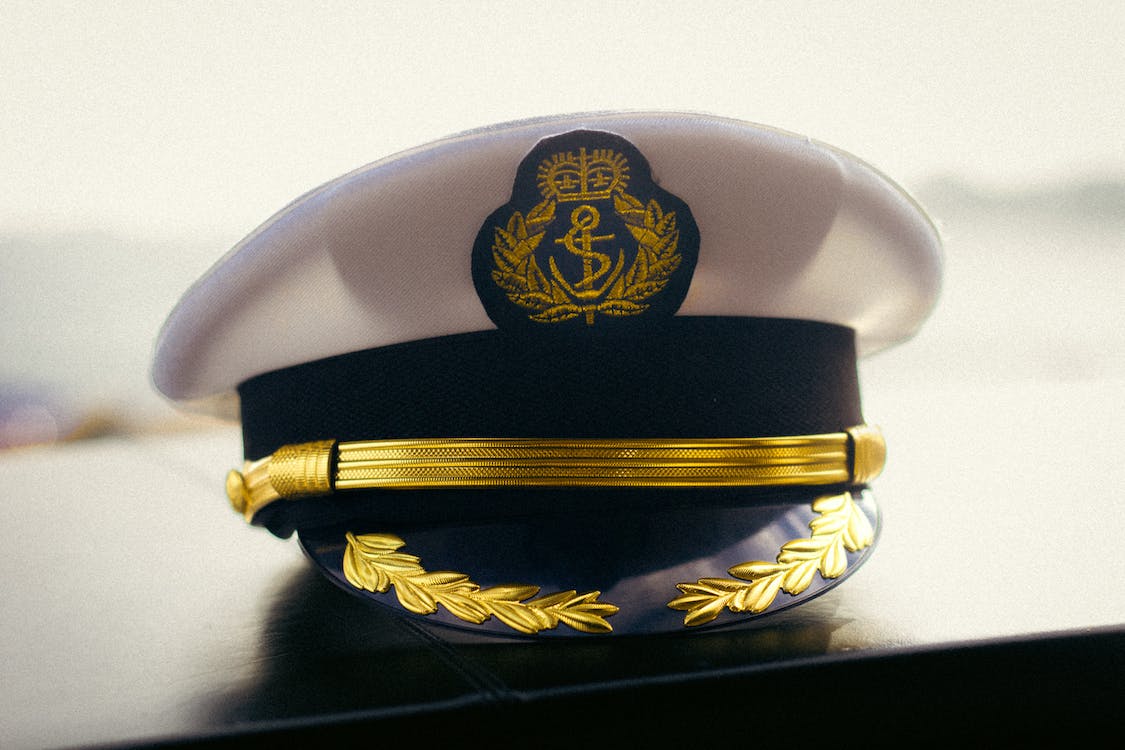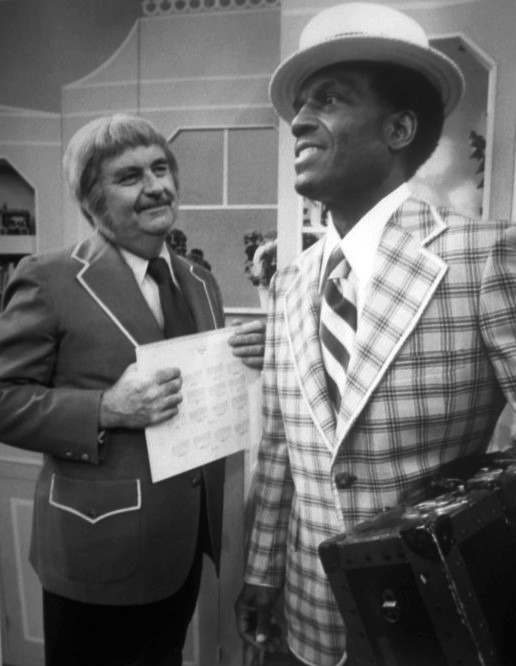Throughout the annals of pop culture, the concept of the captain has come to symbolize more than just a rank or title. It embodies leadership, charisma, and moral complexity. These revered figures, whether steering ships through the cosmos or rallying troops on the battlefield, have become touchstones of inspiration and icons of various virtues. Their decisions, often made amidst tumultuous and high-stakes scenarios, shape narratives and leave indelible marks on their fictional universes and the audiences who engage with them.
In examining the pantheon of pop culture captains, one will find a tapestry rich with diversity. There are those like Captain James T. Kirk of Starfleet, who, by the age of 34, had already become the youngest captain in Starfleet’s history, known for his excellent leadership and loyal crew. In contrast, other captains such as Captain America stand as paragons of stoicism and valor, whereas figures like Han Solo exemplify a certain roguish charm. Each captain, cloaked in their own brand of leadership, has played a pivotal role in shaping their respective stories and the larger cultural zeitgeist.
The influence of these characters extends beyond their immediate narratives, impacting fashion, language, and societal norms, permeating the collective consciousness. Their stories often reflect contemporary moral dilemmas and societal challenges, serving as allegories that resonate with audiences on a personal level. These legendary captains, with their distinctive personalities and leadership styles, continue to steer the cultural ship, navigating through the waters of imagination and leaving a legacy that endures across generations.
Legendary Captains of Literature
In the realm of literature, several captains have sailed beyond the bounds of their pages to become icons of bravery, obsession, and discovery. Their narratives are woven deeply into the fabric of literary history.
Captain Ahab: Whaling Vengeance
Herman Melville’s Moby-Dick introduces Captain Ahab, a character defined by his relentless pursuit of the titular white whale. Ahab’s monomaniacal quest for vengeance against Moby Dick dramatizes the destructive nature of obsession, serving as a central theme of the novel.
- Name: Captain Ahab
- Book: Moby-Dick
- Author: Herman Melville
- Purpose: Revenge Against Moby Dick
- Traits: Obsessive, Vengeful, Tragic
Captain Nemo: Underwater Explorer
Captain Nemo, created by Jules Verne in 20,000 Leagues Under the Sea, embodies the spirit of exploration and defiance. Steering the Nautilus through the depths of the oceans, Nemo’s character reflects a complex mixture of scientific genius, isolation, and resistance to oppressive powers.
- Name: Captain Nemo
- Book: 20,000 Leagues Under the Sea
- Author: Jules Verne
- Relevance: Pioneer of Undersea Exploration
- Traits: Intelligent, Reclusive, Revolutionary
Iconic Captains in Film
Film has gifted us with a fleet of iconic captains, each steering their own unique course across the seas of popular culture. From the swashbuckling antics of Captain Jack Sparrow to the intrepid space adventures of Han Solo and the gripping real-life drama of Captain Phillips, these captains have become anchors in their respective movies.
Captain Jack Sparrow: Pirate Charm
Johnny Depp portrays Captain Jack Sparrow, the whimsical and savvy pirate of the Pirates of the Caribbean franchise. His eccentric personality and memorable one-liners have solidified him as a central figure in film lore. His escapades on the Black Pearl offer a captivating blend of humor, action, and heart.
- Movies: Pirates of the Caribbean series
- Traits: Charismatic, Cunning, Comical
Captain Han Solo: Space Smuggler
As the captain of the Millennium Falcon, Han Solo, played by Harrison Ford, stands out in the Star Wars universe with his roguish demeanor and an uncanny ability to get in and out of trouble. Ford’s depiction has made Solo an enduring figure of the space opera genre.
- Movies: Star Wars series
- Traits: Resourceful, Charismatic, Risk-Taker
Captain Phillips: Modern Heroics
Tom Hanks took on the role of Captain Richard Phillips in the movie Captain Phillips, produced by Sony Pictures. This film portrays the true story of the Maersk Alabama hijacking in 2009, showcasing the courage and resilience of the captain during a pirate hijacking off the coast of Somalia.
- Movies: Captain Phillips
- Traits: Bravery, Determination, Leadership
Captains Who Shaped Television
Television has been profoundly influenced by the captains of the Star Trek franchise, bringing to life complex characters and moral quandaries through their unique leadership styles and iconic voyages across the stars.
Captain Kirk: The Original Explorer
William Shatner portrayed Captain James T. Kirk in the original Star Trek series, epitomizing the bold and charismatic explorer. His tenure as commander of the USS Enterprise set the standard for all fictional spacefaring captains, making an indelible mark on pop culture and science fiction television.
Captain Picard: The Next Generation
With gravitas and a penchant for diplomacy, Captain Jean-Luc Picard, played by Sir Patrick Stewart, led Star Trek: The Next Generation. His thoughtful approach to leadership and ethical dilemmas exemplified a new era of Star Trek and expanded the series’ appeal to a broader audience.
Captain Sisko: Deep Space Commander
Commander Benjamin Sisko, eventually promoted to captain, was masterfully portrayed by Avery Brooks on Star Trek: Deep Space Nine. As the administrator of a key space station, Sisko navigated complex political landscapes and a multi-species crew, offering a more grounded and gritty perspective on leadership within the Star Trek universe.
Captain Janeway: Voyager Trailblazer
Kate Mulgrew’s Captain Kathryn Janeway helmed the USS Voyager in Star Trek: Voyager. As the first female captain to lead a Star Trek series, she exemplified resilience and ingenuity by guiding her ship and crew on an unexpected 75-year journey back to Earth.
Captains in Animation and Comics
The realm of animation and comics introduces a diverse ensemble of captains, each embodied by a distinct ethos and often tied to a broader narrative or moral framework.
Captain America: Super Soldier
Steve Rogers, known as Captain America, is a cornerstone of Marvel Comics and an integral member of The Avengers. His origins date back to World War II, where a super-soldier serum transformed him into a symbol of justice and freedom. Outside the realm of comics, he has continued to wield his iconic shield in various video games and animated series, maintaining his status as a beacon of heroism.
- Affiliations: The Avengers, S.H.I.E.L.D.
- Notable Enemies: Red Skull, HYDRA
Captain Planet: Eco Warrior
Captain Planet stands out as the champion of the environment, fighting to combat pollution and preserve the Earth’s natural resources. With the power given by the combined forces of the Planeteers’ rings, representing Earth, Fire, Wind, Water, and Heart, he embodies the eco-conscious spirit of his late 80s and early 90s animated series. In each episode, his intervention underscores the importance of environmental stewardship.
- Creator: Ted Turner
- Allies: The Planeteers
Captain Caveman: Prehistoric Detective
Captain Caveman or “Cavey” for short, hails from the prehistoric era and finds himself solving modern mysteries. This animated character from Hanna-Barbera Productions comes equipped with a variety of tools and weapons concealed within his body hair, and is notable for his enthusiastic battle cry and brute strength. Captain Caveman often crosses paths with various characters from the Hanna-Barbera universe, highlighting his comedic appeal.
- Catchphrase: “Captain CAAAAAAAVEMAAAAAAAN!!!”
- Traits: Super strength, flight, a variety of gadgets
Captains of Pop Culture and Branding
Pop culture has consistently celebrated the iconic figure of the captain, often bridging the gap between a commanding presence and commercial branding. These figures, from the man or woman in uniform to the charismatic rogues of the seas, exemplify traits like boldness and reliability, making them effective mascots in advertising.
Captain Morgan: The Spirit of Adventure
Captain Morgan is synonymous with spirited adventure and lively personality. The brand leans on the historical visage of a swashbuckling privateer to foster a connection with consumers seeking the thrill and audacity often associated with pirates. Their iconic mascot, derived from the real 17th-century Welsh privateer Sir Henry Morgan, stands tall in a red coat, underlining the boldness and excitement that the brand embodies.
Cap’n Crunch: Breakfast Buccaneer
With a sailor’s hat perched atop his head, Cap’n Crunch brings a sea-faring charm to breakfast tables across the globe. This mascot reinforces the allure of a captain, dressed in a traditional navy uniform, to appeal to both children and adults. Through his playful persona and trademark crunchy cereal, Cap’n Crunch crafts a narrative of reliability and taste that has become a staple in popular culture.
The Realm of Fantasy Captains
In the pantheon of fantasy captains, two figures stand out from J.M. Barrie’s timeless classic: Peter Pan and Captain Hook. Their legendary conflict in Neverland captures the eternal battle between youthful innocence and the shadow of time.
Captain Hook: Neverland’s Nemesis
Captain Hook is the quintessential antagonist, feared by all in Neverland. He is a complex character, as much defined by his sophisticated mannerisms and flamboyant attire as by his ceaseless pursuit of Peter Pan. Clad in exquisite attire and wielding a hook in place of his lost hand—courtesy of Peter Pan and a certain crocodile—Captain Hook’s legend endures as the archenemy of the boy who wouldn’t grow up.
- Origin: Etonian, with a taste for high culture and refinement
- Nemesis: Peter Pan
- Goal: To defeat Peter Pan and assert his authority over Neverland
Peter Pan: The Boy Who Wouldn’t Grow Up
Peter Pan is the embodiment of childhood, leading a carefree existence with his band of Lost Boys. He symbolizes eternal youth and the resistance to the passage of time, defying aging and adult responsibilities. Residents of Neverland and audiences alike are captivated by Pan’s mischievous spirit and his ability to fly, representing freedom from worldly constraints.
- Home: The mythical Neverland
- Ability: Flight, without the need for wings
- Adversary: Captain Hook
- Desire: Adventures and maintaining the spirit of youth
Captaincy in Video Games
Video games have brought various captains to life, allowing players to experience the thrill of leadership and strategy within virtual worlds. Among them is a figure known for speed and charisma within the racing genre.
Captain Falcon: F-Zero Racer
Captain Falcon is a renowned character from Nintendo’s F-Zero franchise. As a bounty hunter and an exceptional F-Zero pilot, he exudes confidence and skill. He made his debut in 1990 in the game F-Zero, a futuristic racing series where players navigate high-speed hovercars through various treacherous courses. Captain Falcon’s signature vehicle, the Blue Falcon, is one of the most recognizable crafts in the series. His leadership and fearlessness are qualities that extend into the crossover Super Smash Bros. series, where he’s also a popular fighter.
F-Zero has not only been influential as a racing game but also for representing a unique facet of virtual captaincy outside the realm of strategy and simulation, where one might typically encounter Starfleet captains from the Star Trek universe. It highlights a different aspect of command, focusing on individual prowess and the sort of snap decisions needed in high-speed competition.
Captains in Modern Media and Legends
The archetype of the captain has persisted through history, evolving with the times. They lead with courage and charisma, whether their domain is the high seas or the vastness of space. Their stories reflect our fascination with leadership and adventure.
Captain Marvel: Cosmic Avenger
Carol Danvers, known as Captain Marvel, epitomizes the cosmic avenger archetype in pop culture. As an Avenger, she defends Earth and the universe with unmatched power and a strong sense of justice. Her popularity has soared in modern media, making her one of the most formidable captains and heroes within the Marvel Universe.
- Affiliations: Avengers, Starforce
- Abilities: Superhuman strength, energy projection, flight
- Significance: Symbol of empowerment and leadership in intergalactic conflicts
Captain Archer: Enterprise Pioneer
Captain Jonathan Archer steered the iconic starship Enterprise during humanity’s early exploratory missions in the Star Trek universe. He exemplifies the pioneer spirit, navigating uncharted territories and fostering peaceful relations with alien species. His legacy is one of peace, discovery, and the foundational diplomacy that shaped future Starfleet protocols.
- Command: NX-01 Enterprise
- Traits: Diplomatic, curious, trailblazer
- Impact: Set the course for Starfleet’s exploratory and diplomatic missions
These captains, one drawn from the realm of superheroes and the other from science fiction, reflect our enduring admiration for those who push boundaries and protect civilizations. Through their stories, they inspire audiences with their leadership and feats.
Portrayals of Real and Fictional Captains
The fascination with captains in pop culture spans across a spectrum of real-life heroics and fictional adventures. These figures have been brought to life on screen and in literature, embodying bravery, strategy, and the human spirit in the face of adversity.
Captain Phillips: Maritime Survival
Captain Richard Phillips became a figure of international interest following the 2009 hijacking of the MV Maersk Alabama by Somali pirates. His ordeal and subsequent rescue by U.S. Navy SEALs catapulted him into the limelight. The true tale of maritime survival was adapted into a gripping portrayal by Tom Hanks in the film Captain Phillips. The movie illustrates the tension and danger involved in modern piracy, a far cry from the romanticized versions often seen in pop culture.
While Captain Phillips reflects real-world events, pop culture often depicts captains in various imaginative adventures. Although not directly connected to Captain Phillips or piracy, other captains like Captain Kangaroo (portrayed by Bob Keeshan) offered children’s television a different kind of leadership, whimsical and friendly, steering young minds through moral and educational journeys. Christian Bale has embodied fictional captains with strong leadership qualities in films, yet none are as directly maritime-focused as the character of Captain Phillips.
Moreover, captains in the realm of animation have sailed across screens with voices like that of Mel Blanc, who lent his vocal talents to numerous animated characters, although none specifically to the archetype of a sea captain. In television series like Buffy the Vampire Slayer, viewers can find leadership and resilience in characters such as Buffy, who, while not a captain by title, demonstrates the commanding presence and resourcefulness often attributed to captains.
Pop culture continues to be enriched by both the valorous and innovative depictions of captains, whether rooted in reality as with Captain Phillips or imagined in the infinite realms of fiction.
Influential Pop Culture Captains
Pop culture has bestowed upon audiences a host of legendary captains, each with a distinct persona that resonates across various mediums. In movies, Captain Jack Sparrow from Pirates of the Caribbean stands out with his peculiar wit and charm. His cunning and surprisingly ethical piracy have cemented him as a beloved figure.
Television has its share of iconic commanders as well. Captain James T. Kirk from Star Trek exemplifies leadership and exploration, inspiring countless stories about space and the human spirit. Captain Jean-Luc Picard, his successor in rank and leadership style, also garners admiration for his calm, philosophical demeanor and strategic mind.
In literature, captains of high seas adventure, often depicted as pirate kings, have thrilled readers. They craft a romanticized image of the pirate life, while captains in uniform within novels mirror the complexities of real-world leadership.
Video games, too, have contributed to the captain archetype. They often paint these characters as strategic thinkers and warriors, combining leadership with interactive storytelling.
Noteworthy Captains in Various Genres
- Movies
- Captain Jack Sparrow (Pirates of the Caribbean)
- Television
- Captain James T. Kirk (Star Trek: The Original Series)
- Captain Jean-Luc Picard (Star Trek: The Next Generation)
- Books
- Fictional pirate captains in Swashbuckling Adventures
- Captains in uniform in Military Fiction
- Video Games
- Strategy and adventure game protagonists with ranks of captain
The imprint these captains leave on popular culture is significant, reflecting various aspects of leadership and the consequences of decision-making. Whether they helm a ship in search of treasure, command a starship on a science mission, or lead troops in digital wars, these figures have become cornerstones of their respective genres.
Frequently Asked Questions
Captains in pop culture have captured imaginations across various mediums, from swashbuckling pirates to stoic spacefarers. This section answers common queries about these iconic figures.
Who are some of the most iconic captains in film history?
In film, Captain Jack Sparrow from the “Pirates of the Caribbean” series stands out for his wit and charm, while Captain James T. Kirk of “Star Trek” fame is celebrated for his leadership and exploration.
Can you list several notable captains from popular literature?
Literature has introduced readers to Captain Ahab from “Moby Dick,” known for his obsessive quest, and Captain Nemo from “Twenty Thousand Leagues Under the Sea,” renowned for his mysterious nature and advanced submarine, the Nautilus.
What are some memorable female captains in pop culture?
Among female captains, Kathryn Janeway of “Star Trek: Voyager” is a trailblazer in leadership, and Captain Amelia from “Treasure Planet” breaks the mold with her steely determination and nautical expertise.
Which fictional captains are recognized for their leadership in pop culture?
Captain America, a superhero known for his unwavering moral compass, and Captain Jean-Luc Picard with his diplomatic and thoughtful approach, are both recognized for their exemplary leadership.
What are the classic costumes associated with legendary pop culture captains?
Classic costumes include Captain Hook’s extravagant attire with a prominent hook, and Captain America’s distinctive star-spangled suit with a shield that has become a symbol of heroism.
Who are considered the greatest fictional captains of all time?
The greatest fictional captains are often debated but typically include Captain James T. Kirk, revered for his command of the USS Enterprise, and Captain America, idolized for his heroics and virtues.





